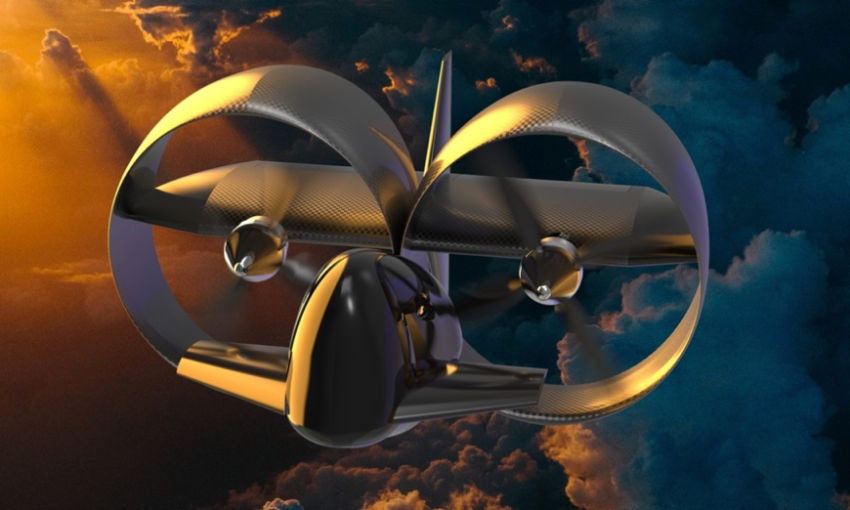
Delft Silverwing through to final
Silverwing, an electric single-person aircraft designed by a team of students from Delft University of Technology, has won the second round of the international GoFly competition, the organisation announced earlier this week. In a year's time, a fly-off in the United States will be held to decide which of the remaining teams will go home with the top prize of a million dollars.
Silverwing is one of the five winners of the second round of the competition, which is sponsored by aircraft manufacturer Boeing. At the moment, only a scale model (1:2) of the Silverwing exists, but now the device is through to the final, the team can finally build a full-size version with the $50,000 it received from Boeing.
Scale model
The competition requires participants to design a single-person aircraft that can take off and land vertically, and meet numerous safety and noise requirements.
The scale model can autonomously take off and land vertically, among other feats, but the final aircraft, which will be 100% electric, will also have to fly horizontally. The aircraft operates completely autonomously in the air, meaning no pilot's license is required to fly in it.
Earlier this spring, the Silverwing team submitted a comprehensive technical report on their design to the competition jury. Thanks to this report, Silverwing has now been selected as one of the five finalists.
140 km/h
Over the past few months, the design has been modified considerably. For example, the passenger is now enclosed in a protective cabin for safety reasons. The large wing provides plenty of lift in horizontal flight, while the small front wing provides control and stability. The aircraft produces 87 dB of sound, comparable to a motorway at a distance of 15 metres. The top speed is more than 140 km/h. There is also sufficient thrust for controlled vertical take-off and landing.
Fly-off
The first round of the competition, the conceptual design phase, was held in June 2018. Silverwing was one of just 10 participants from more than 600 entries that were selected for the second round. There are now 34 students in the Delft team.
The fly-off will take place in the United States early next year, when competing aircraft will have to take off vertically, cover an 11-km route, and land vertically. Bonus points can be earned for low noise levels, dimensions and speed. The winner of the final will take home 1 million dollars.
Opening image: Delft University of Technology
If you found this article interesting, subscribe for free to our weekly newsletter!






